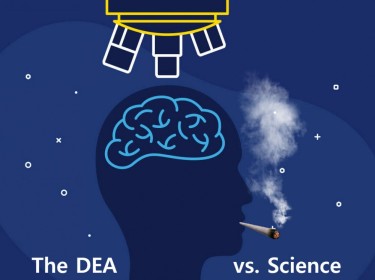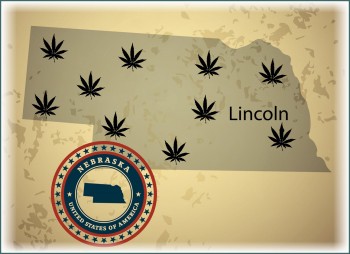
It's a familiar story by now - well-intentioned researchers submit applications to study cannabis, politicians make promises about reform, and years later, nothing has changed. The latest chapter in this saga features MMJ International Holdings, whose CEO Duane Boise recently declared "This is insanity" after years of bureaucratic obstruction. And he's right.
The Drug Enforcement Administration has consistently proven itself to be the greatest roadblock to cannabis reform in America. Despite overwhelming public support for medical cannabis, despite 38 states having legalized it in some form, and despite bipartisan congressional pressure, the DEA continues its decades-long pattern of stonewalling, delaying, and obstructing any meaningful progress.
When we examine this pattern closely, it becomes clear that the DEA isn't merely incompetent or overly cautious - it's functioning exactly as designed. Created during the Nixon administration alongside the Controlled Substances Act, the DEA has always served as the enforcement arm of a system that grants pharmaceutical companies exclusive control over which substances Americans can legally access.
This isn't conspiracy theory; it's structural reality. The DEA doesn't just happen to favor pharmaceutical interests - protecting those interests is woven into its very DNA. And as cannabis threatens to disrupt one of Big Pharma's most profitable monopolies, the DEA's resistance becomes increasingly desperate and transparent.
Let's explore how this agency maintains its chokehold on cannabis research, why Congress seems powerless to stop it, and why meaningful reform will require more than just replacing a few officials or tweaking a few regulations. The system isn't broken - it's working exactly as intended. And that's the problem.
The Guardians of Pharmaceutical Monopoly: Understanding the DEA's True Role
When Representative Earl "Buddy" Carter called the DEA "the epitome of ineptitude" during congressional hearings, he wasn't just expressing frustration - he was identifying a fundamental truth about the agency. But what appears as ineptitude is actually something far more calculated.
The DEA was established in 1973 alongside the Controlled Substances Act, which created a framework that effectively grants pharmaceutical companies exclusive rights to produce and distribute controlled substances. This framework wasn't designed to protect public health or facilitate research - it was designed to create and protect monopolies.
Under this system, pharmaceutical companies can navigate the regulatory labyrinth to bring patented, synthetic versions of controlled substances to market, while researchers attempting to study the natural plants these synthetics mimic face nearly insurmountable obstacles. It's no coincidence that dronabinol (synthetic THC) received FDA approval while actual cannabis remains a Schedule I substance with "no accepted medical use."
The case of MMJ International Holdings perfectly illustrates this dynamic. Since filing their application in 2018, they've faced endless delays and arbitrary barriers. Meanwhile, pharmaceutical giants continue to develop and market cannabis-derived or cannabis-mimicking medications with comparative ease. The difference? MMJ threatens the established order by attempting to develop standardized, pharmaceutical-grade medications derived from actual cannabis.
When DEA officials like Matthew Strait and Thomas Prevoznik defend their agency's delays by citing "international treaty obligations" and "vetting processes," they're deploying the classic bureaucratic strategy of hiding behind procedure to avoid addressing substance. The real question isn't whether their processes are thorough - it's whether those processes serve the public interest or merely protect pharmaceutical monopolies.
The DEA's history of obstructing cannabis research isn't a bug in the system - it's a feature. By maintaining cannabis as Schedule I, the DEA ensures that the only legal path to cannabis-based medicine runs through pharmaceutical companies with the resources to navigate the regulatory maze and develop patentable, synthetic alternatives.
This arrangement benefits everyone except patients: pharmaceutical companies maintain their monopolies, the DEA maintains its budget and authority, and politicians can appear to support reform while allowing the status quo to continue. The only losers are researchers like those at MMJ and the patients who could benefit from their work.
So when we see the DEA continuing to delay and obstruct despite congressional mandates and public pressure, we shouldn't be surprised. They're not failing at their job - they're succeeding at their real mission: protecting the pharmaceutical industry's stranglehold on controlled substances.
The Illusion of Reform: Why Congressional Pressure Hasn't Changed the DEA
The 2020 House Oversight Committee hearing highlighted a curious paradox: bipartisan agreement that the DEA's handling of cannabis research is unacceptable, yet a continued inability to force meaningful change. This pattern has repeated for years, raising an obvious question: Why can't Congress make the DEA comply with its directives?
The answer lies in the clever design of our regulatory system. Congress passes laws, but agencies implement them, creating a buffer that allows politicians to support reform publicly while the system continues unchanged. When the DEA ignores a 2016 promise or a 2022 congressional directive to expedite research applications, there are few immediate consequences.
This dynamic creates the illusion of progress while maintaining the status quo. Politicians can point to hearings, bills, and strong statements as evidence they're fighting for reform, while the DEA continues to serve its true masters - the pharmaceutical industry that benefits enormously from cannabis prohibition.
Duane Boise's lawsuit against the DEA represents one of the few tools available to force real accountability. By taking the agency to court, MMJ International Holdings has exposed the DEA's obstruction to judicial scrutiny. But even legal challenges face an uphill battle against an agency that has decades of experience in defending its practices.
The calls to transfer cannabis research oversight from the DEA to agencies like the NIH or FDA represent an acknowledgment of this fundamental problem. These proposals recognize that the DEA's culture and incentives make it incapable of fairly administering cannabis research. But such structural changes face powerful opposition from entrenched interests.
Meanwhile, patients suffer. Every day the DEA delays approving additional research cultivators or maintains cannabis as Schedule I is another day that potential treatments remain undeveloped and unexplored. The human cost of this obstruction is incalculable.
The most telling aspect of the ongoing struggle is how little has changed despite seemingly universal agreement that change is necessary. Even with former opponents of cannabis reform now acknowledging its medical potential, the DEA continues to function as the primary obstacle to progress.
This suggests that the problem isn't just a matter of outdated thinking or bureaucratic caution - it's systemic. The DEA's resistance to cannabis research isn't a policy position that can be changed with enough pressure; it's an institutional imperative tied to the agency's very purpose and funding.
Until we recognize and address this fundamental reality, congressional hearings and public statements will continue to create the appearance of movement while the DEA continues its decades-long obstruction of cannabis research and reform.
The Sticky Bottom Line: Breaking the DEA's Chokehold on Cannabis
After examining the DEA's persistent obstruction of cannabis research, the conclusion is inescapable: this agency isn't capable of reform. Its fundamental structure and purpose make it inherently hostile to cannabis progress, regardless of public opinion, scientific evidence, or congressional directives.
The most viable path forward isn't tweaking regulations or replacing individuals within the DEA - it's removing the agency's authority over cannabis entirely. The proposals to transfer oversight to research-focused agencies like the NIH or FDA represent a step in this direction, but even this approach has limitations as long as cannabis remains in the Controlled Substances Act framework.
Complete descheduling of cannabis - removing it entirely from the CSA - represents the only clean break from a system designed to maintain pharmaceutical monopolies. This would allow cannabis to be regulated more like herbal supplements or agricultural products, creating space for both pharmaceutical development and more accessible forms of cannabis medicine.
For patients and advocates, the message is clear: don't be distracted by incremental reforms or promises of change within the existing system. The DEA has demonstrated for decades that it will use every tool at its disposal to maintain the status quo, regardless of the human cost.
MMJ International Holdings' legal challenge to the DEA represents more than just one company's struggle - it's a direct challenge to a system that has successfully resisted meaningful change for half a century. Supporting such challenges, while advocating for structural reform rather than procedural tweaks, offers the best hope for finally breaking the DEA's chokehold on cannabis progress.
As Duane Boise succinctly put it: "This is insanity." The time has come to end it.






